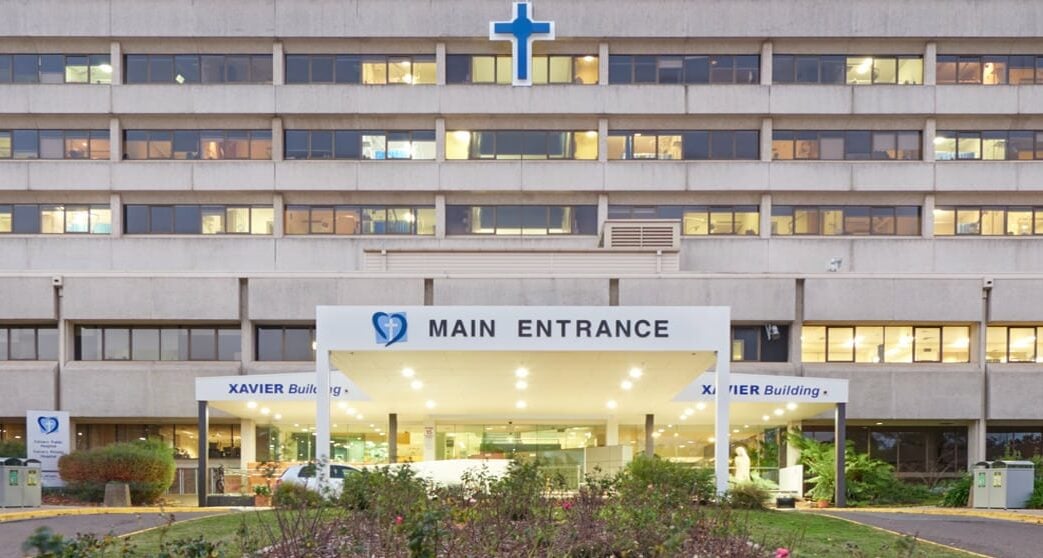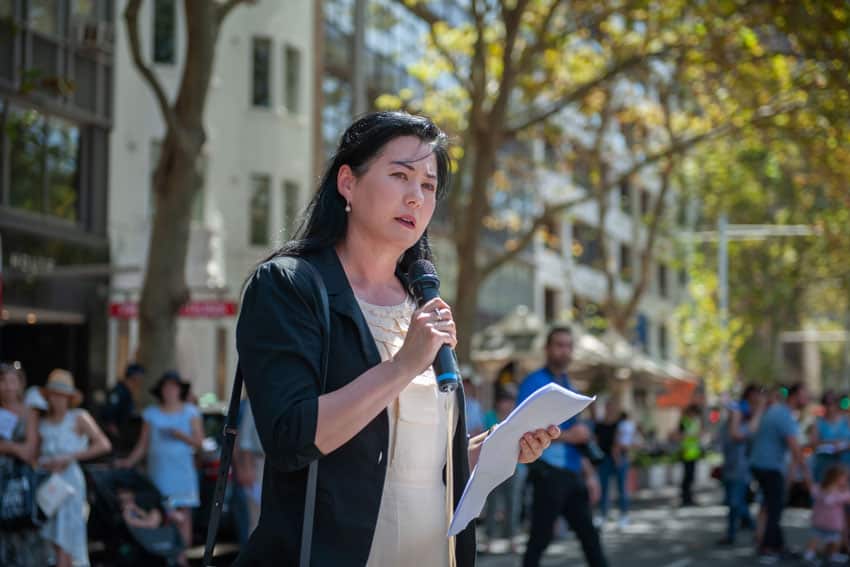
Negotiations between Calvary Public Hospital and the ACT government remain at an impasse following a meeting between Calvary’s national CEO Martin Bowles and Health Minister Rachel Stephen-Smith about the hospital’s compulsory acquisition planned for early July.
Calvary did not receive any meaningful options for resolving the negotiations after the 18 May meeting, Mr Bowles said in a statement published on 23 May.
“We remain hopeful the ACT government will give Calvary … appropriate consideration and provide options beyond the legislation,” he said. “Our people deserve this.”
Mr Bowles said Calvary has 76 years left on its contract and would suffer broader impacts to its services.
Opposition is growing, with senior doctors and religious freedom experts saying it sets a “terrible precedent.”
The Archbishop of Canberra-Goulburn, Christopher Prowse, has also called for new talks to resolve the situation, describing the plan as a “hostile takeover” and calling for the “poisonous” legislation to be withdrawn.
“The approach of the ACT government does not meet any sense of transparency or accountability. Rather, it raises wider fears about the intent of government toward religious services in Australia, Archbishop Prowse wrote in an op-ed for The Australian on 24 May.
“Never before has a government – commonwealth, state or territory – sought to acquire the assets, operations, staff and clients of a church agency with the effect of ceasing its ministry.
“This raises the actions of the ACT government to national significance and creates a dangerous and unpredictable precedent.”
The Archbishop of Hobart, Julian Porteous, has also written about the “hostile takeover” on his blog, Grace and Truth, saying governments should be seeking to foster religious services, not absorb them.
“This takeover is being driven by an ideological bias against a Catholic hospital which does not provide abortion,” Archbishop Porteous wrote.
“It is the act of a government that no longer respects due process and religious freedom. We should all be greatly concerned.
“While they have chosen to come after the Catholic Church on this occasion, if the entire Australian community do not stand in opposition to such an act, no non-government institution will be safe.
“Please stand with Calvary Health Care Australia and the Catholic Church in opposing this egregious act.”
Calvary staff have also expressed their shock at the speed of the compulsory acquisition, with one staff member telling Catholic Voice they “feel voiceless.”
“When we were told by the ACT government ‘not to worry about it,’ we felt patronised,” the staff member said.
Although we give 100 per cent to our work, we now have to navigate the uncertainty of our jobs and the lack of information.”
The Australian Medical Association’s ACT branch president, Dr Walter Abhayaratna, has written to ACT Health Minister Rachel Stephen-Smith to urge her to consult more widely with staff, after a town hall meeting held last week heard extensive complaints from senior doctors.

“The overwhelming message from our town hall meeting was that senior doctors and other staff have been ignored by the ACT government and given no opportunity for consultation or to warn against the mistakes the government is making,” he said.
“Many of the senior doctors who met with us have provided long and, in some cases, multi-decade service to Calvary and the residents of Canberra.
“They deserve to be respected but instead they were expressing their shock, dismay and anger at the ACT government’s move.
“One thing was clear at the meeting—the senior doctors were angry at being disrespected and wanted to tell the ACT government that they have set a terrible precedent.”
Experts in religious discrimination law and bioethics have also raised the alarm, saying the takeover tramples on religious rights, pluralism and conscience.
Dr Anna Walsh, lecturer in law and bioethics at the University of Notre Dame, Sydney, told The Catholic Weekly that protecting the religious ethos of institutions is vital to safeguarding a culture of life and the doctors who wish to foster it.
Without ethos-based institutions, like Calvary Hospital, healthcare professionals who cannot perform abortions or euthanasia will have to rely on whatever individual conscience protections exist in their jurisdiction.
“The worst outcome would be that health professionals wishing to conform to Catholic beliefs about the sanctity of human life avoid or leave certain areas of practice, so as to avoid the conflict and tension that can come with having to negotiate an accommodation for their conscientious objection,” Dr Walsh said.
“Nobody wants to be that weird Catholic doctor or nurse who makes things just that bit harder for everyone else.
“As such, there will need to be an articulate, consistent and collective push back to create a space for prolife health professionals in the healthcare system.”
Religious freedom advocate John Steenhof, principal lawyer at the Human Rights Law Alliance, spoke in defence of Calvary’s religious status at St Christopher’s Cathedral in Canberra on 22 May.
“The ACT government obscures its institutional hostility towards Christianity behind an ambitious efficiency agenda,” Mr Steenhof said.

“You might say, ‘Well, all I want is a hospital that provides efficient and reliable medical services. I don’t care who runs it—the state or the church.’
“But that obscures some wider issues and fundamental human rights concerns.”
Mr Steenhof stressed that freedom of conscience was considered a communal and institutional right under international law, and was not just applicable to individuals.
“The ACT has enacted a Human Rights Act 2004 which ostensibly protects this freedom. Yet the government’s human rights compatibility statement for the Calvary takeover law doesn’t even identify freedom of conscience as a relevant affected freedom,” he said.
“This is a concerning blind spot, and shows the human rights illiteracy of our institutions, including the ACT government.”
The Vatican has also been informed about the ACT Government’s impending takeover of Calvary Public Hospital, although there has been no direct involvement from Rome.
Archbishop Charles Balvo, the papal nuncio for Australia, told The Canberra Times that his “personal practice is to communicate as complete information as possible.”
“In this case the issue at hand is being dealt with by Calvary Bruce Hospital, which has its own legal status in canon law, Catholic Health Australia and the Archdiocese of Canberra and Goulburn,” he said.
A petition to stop the takeover of the hospital, launched by the Canberra-Goulburn Archdiocese’s taskforce led by Fr Tony Percy, has attracted 25,000 signatures as of 22 May.
The Archbishop of Sydney, Anthony Fisher OP, has encouraged Catholics and all people of goodwill to sign the petition, saying the takeover would enable Canberra Health Services to “push their anti-life agenda right through the hospital.”
The takeover was announced on 10 May, six months after negotiations broke down between the ACT government and Calvary, and only a month after a government review lashed Calvary for its refusal to perform elective terminations.
The legislation will likely pass by 31 May, with the takeover flagged for an early July completion date.
